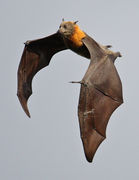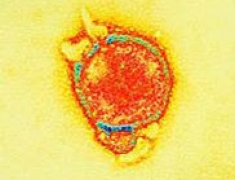
Logan and Albert Conservation Association

 The Queensland Government is running an online discussion forum on Friday 23 September from 12 pm to 1.30 pm. The forum, titled
The Queensland Government is running an online discussion forum on Friday 23 September from 12 pm to 1.30 pm. The forum, titled
'Flying foxes, your animals and you', will be streamed live online on the flying foxes and Hendra virus online information session page and on the
Biosecurity Queensland Facebook page.
Watch a panel of experts address the myths and clarify the facts around flying foxes and Hendra virus.
Submit a question for the expert panel or find out more information from the flying foxes and Hendra virus online information session
Avoiding Hendra is easier than killing bats and pending release of a vaccine against Hendra virus, managing the immediate risk to horses and humans is simple – follow simple hygiene and feed management practices that reduce horse and horse feed exposure to bats and their excretions. Hendra virus is a zoonotic disease, which means it can transfer from animals to people. Hendra virus can cause disease in horses but only rarely causes disease in humans. See links to detailed information about Hendra virus from QG DPI website
The panel experts coming together to answer your questions are:
Mr Clive Cook, General Manager, Department of Environment and Resource Management
Dr Michael Cleary, Queensland Health's Acting Chief Health Officer
Dr Rick Symons, Biosecurity Queensland's Chief Veterinary Officer
Dr Hume Field, Biosecurity Queensland's Principal Scientist
If you have an urgent enquiry or suspect a possible Hendra case, notify Biosecurity Queensland on 13 25 23 (business hours) or
the Emergency Animal Disease Watch Hotline on 1800 675 888 24 hour hotline
 Professor Jonathan Hill, the head of the school of Veterinary Science at the University of Queensland, says once a Hendra virus quarantine has been lifted, any concern about any of the horses on property where Hendra virus had been is misplaced. It is indeed uncessary misfortune to have sound horses devalued as a result of exposure. When people who contact or walk into infectious diseases and don't get the disease, we know that they are not infected. Professor Jonathan Hill says the horses are not damaged goods just because they have been on a stud which had horses that had Hendra virus. In fact you could say that they have been tested to be 100 per cent certain of being clear, which puts them in a unique spot.
Professor Jonathan Hill, the head of the school of Veterinary Science at the University of Queensland, says once a Hendra virus quarantine has been lifted, any concern about any of the horses on property where Hendra virus had been is misplaced. It is indeed uncessary misfortune to have sound horses devalued as a result of exposure. When people who contact or walk into infectious diseases and don't get the disease, we know that they are not infected. Professor Jonathan Hill says the horses are not damaged goods just because they have been on a stud which had horses that had Hendra virus. In fact you could say that they have been tested to be 100 per cent certain of being clear, which puts them in a unique spot.
Professor Hill says such misconceptions stem from a lack of knowledge about Hendra virus, which need to be addressed with research.
 CSIRO scientist Dr Deborah Middleton works in the field of Transforming Animal Biosecurity - Livestock Industries and she is the theme leader for this reseach.The research results are published online in the very scientific journal plospathogens or it is available from links as part of the media release. ABC news reported on this 31 October 2009.
CSIRO scientist Dr Deborah Middleton works in the field of Transforming Animal Biosecurity - Livestock Industries and she is the theme leader for this reseach.The research results are published online in the very scientific journal plospathogens or it is available from links as part of the media release. ABC news reported on this 31 October 2009.
The CSIRO is claiming a breakthrough in the battle against the deadly Hendra virus.
A scientific team from the CSIRO and the United States has developed a serum which gives a good level of protection to ferrets exposed to the similar Nipah virus.
They demonstrated that administering human monoclonal antibodies after exposure to Nipah virus protected the animals.
The CSIRO's Dr Deborah Middleton, who led the experiments at Geelong's maximum biosecurity facility, says the findings are extremely encouraging. "Our research clearly suggests that an effective treatment for Hendra virus infections in humans should be possible, given the very strong cross-reactive activity this antibody has against Hendra virus," she said.
"As Hendra and Nipah viruses cause severe disease in humans, a successful application of this antibody as a post-exposure therapy will likely require early intervention."
Or you can search the archives here